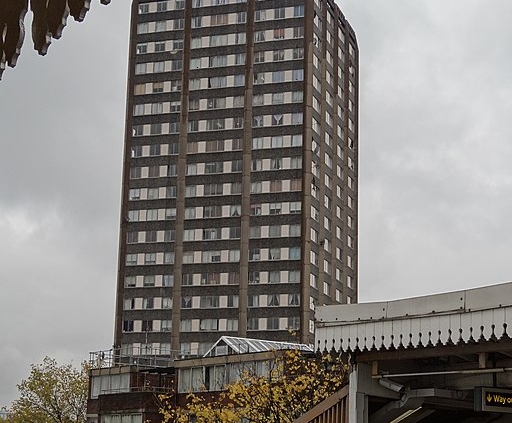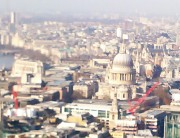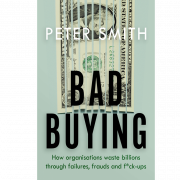Grenfell Tower Inquiry Phase 2 Report – Just Terrible
I’ve generally stayed away from writing about the Grenfell fire tragedy. It just seemed too serious and horrible an issue to be talking about “bad buying” and technical procurement issues. What the victims went through is just unimaginable.
The Phase 2 report from the Inquiry was released recently and it is quite rightly highly critical of quite a range of people and organisations. Companies in the sector that provided materials used in the building; the architects and designers; the local authority and housing managers; central government civil servants; then-Minister Eric Pickles; the London fire brigade… they all bear some responsibility for what happened. Wider failures in building regulations and fire safety also contributed.
CIPS (the Chartered Institute of Procurement and Supply) contributed strongly to the Inquiry, initially chairing the Procurement Working Group as part of the Hackitt Review of building regulation and fire safety (leading to the Building a Safer Future report). What became clear, CIPS says, is “there were many examples of poor commercial practices in the years leading up to the fire, focusing on price and margin at the expense of safety.”
I often hear complaints that public procurement is “all about price and nothing else”. I always push back on that and say that in my experience, price or even total cost is always an evaluation factor, but the vast majority of procurement exercises also consider other non-cost factors, which have serious weighting in the evaluation model. But it is probably fair to say that some parts of the construction procurement world have not exactly been at the leading edge of good practice thinking.
That seemed evident from the report, where too many decisions were made simply to save money rather than through a proper consideration of all the true “value for money” factors. And if a value for money model doesn’t include looking at the chances of killing people, then it should. This is from the Phase 2 executive summary report. (TMO is the “tenant management organisation” that was responsible for Grenfell).
“Although Rydon’s tender was judged to be the most competitive, it still exceeded the TMO’s budget. As a result, although the TMO had received advice from its lawyers that it would be improper to do so, it entered into discussions with Rydon before the procurement process had been completed leading to an agreement that, if Rydon were awarded the contract, it would reduce its price to an acceptable level”.
Illegal, bad practice, and of course led to Rydon, the principal contractor on the tower refurb, being focused very firmly on cost minimisation.
It was also shocking to see that the firms involved, including those that had basically lied about the products they were supplying, or had hidden test results, continued to win public sector work after Grenfell.
The Guardian reported that “about £250m in public deals have been made in the past five years with corporations involved in the high-rise’s refurbishment, according to searches of public contracts by the outsourcing data firm Tussell for the Guardian. They include companies currently or formerly owned by Saint-Gobain, which made the combustible Celotex insulation used on the tower, and Rydon, the main contractor for the works”.
Now the new UK (excluding Scotland) Procurement Act includes what are in theory stronger provisions to allow firms to be barred from public procurement competitions. The Prime Minister told Parliament that he wanted to ban the firms involved here. “This government will write to all companies found by the inquiry to have been part of these horrific failings as the first step to stopping them being awarded government contracts,” Starmer pledged.
That doesn’t seem as strong as you might expect, but no doubt there will be process that must be followed if we want to avoid legal challenge from those suppliers. I’ve been somewhat cynical about the chances of the new “debarment regime” in the Act really being effective, but I sincerely hope I’m wrong and these firms are kicked out of public business for a very long time.
It is difficult for individuals within large organisations to speak up sometimes. We can all get caught up in the corporate “groupthink” and perhaps misplaced loyalty. (Look at all the people in the Post Office who knew the Horizon system was dodgy and that postmasters were being treated appallingly, but said nothing). Grenfell shows how terrible the consequences of that sort of behaviour can be. So if your firm is expecting you to lie or deceive others about the chances of your product killing people, then perhaps you really should say something.








